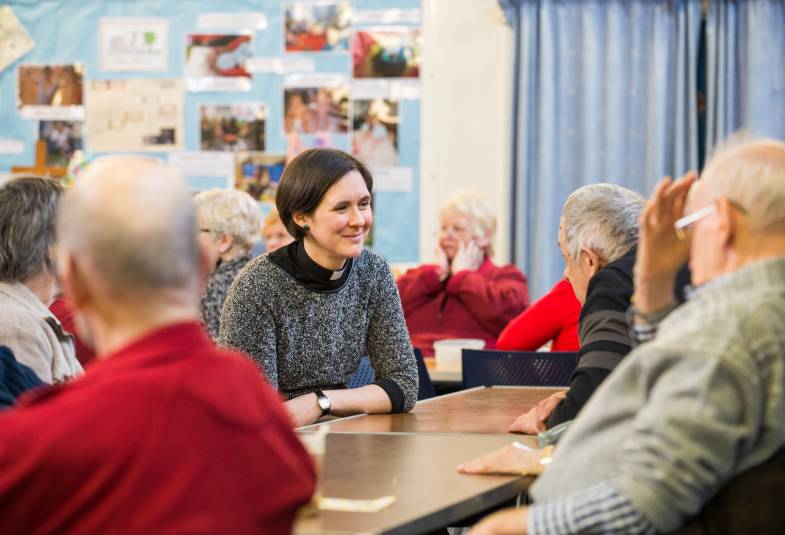
To ensure that all gifts and ministries can flourish, we have worked alongside Transformations, a group of women working since 2011 on the flourishing of women’s ministry, to better understand how women and men experience ministry differently in a range of contexts.
The number of women entering training for ordained ministry has grown rapidly in recent years. However, there have been big differences in the age profile of men and women training for ministry. Women have tended to be older, whilst the younger candidates have been predominantly men.
Research partly funded by Transformations in response to a request from the College of Bishops, which identified barriers faced by younger women, has led to a number of vocations events for younger women and boosted the numbers exploring ordination.
Women now account for almost a third of all clergy and made up the majority of those entering training in 2017 and 2018.
The number of women in senior leadership positions within the Church in 2017 was double what it was five years previously, yet there are still very few women leading larger churches. Several pieces of Ministry Division and Transformations research have looked at why this should be:
- Women and Leadership in the Church: Insights from Gender & Management Literature – gender imbalances in senior management beyond the church – and what the church can learn from this
- Vocational Pathways: Clergy Leading Large Churches – how male and female leaders move through ministry, with a particular focus on incumbents of large churches
- Women Leading Larger Churches – large and very large churches, the barriers to women leading them and what might be done to enable more women to be appointed
Among the good practice findings from these are:
- Creating ways to develop women’s ordained ministries
- Challenging stereotypes
- Ensuring that women are given placements, curacies and developmental opportunities in larger churches
- Sharing good practice around maternity and childcare policies, part-time and job-share posts in large churches
- Watching the wording of job advertisements and how qualities required for a role are described, so as to avoid gender bias
- Training for those making appointments, particularly to be aware of unconscious bias
- Recruiting more women to plant and lead resource churches
All this research has also informed our young vocations work, maternity policies, and our Living Ministry research project.
Other aspects of the Transformations agenda include maternity provision, family-friendly working policies and clergy couples.